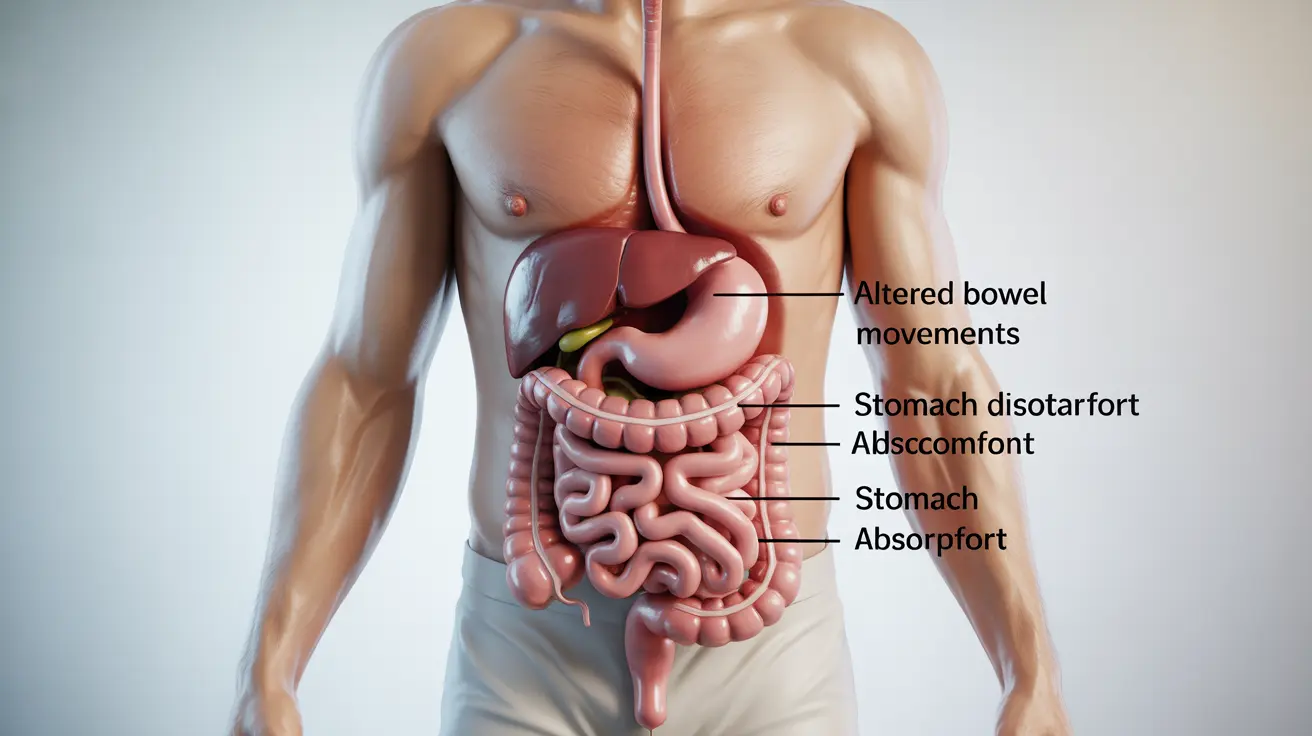If you're taking Adderall for ADHD or narcolepsy, you may notice changes in your digestive system and bowel habits. Understanding how this medication affects your gastrointestinal health is crucial for managing potential side effects and knowing when to seek medical attention.
This comprehensive guide explores the relationship between Adderall and digestive function, including common side effects and practical management strategies.
How Adderall Affects Your Digestive System
Adderall, a stimulant medication containing amphetamine and dextroamphetamine, can significantly impact your digestive system. The medication primarily affects your body's central nervous system, which in turn influences various digestive processes.
The drug can speed up or slow down your digestive tract, leading to various gastrointestinal effects. These changes occur because Adderall influences both the sympathetic and parasympathetic nervous systems, which control digestive function.
Common Digestive Side Effects
Changes in Bowel Movements
Many people experience alterations in their bowel habits while taking Adderall. These changes can include:
- Increased frequency of bowel movements
- Diarrhea
- Constipation
- Changes in stool consistency
Appetite and Stomach Issues
Adderall commonly affects appetite and can cause various stomach-related symptoms:
- Decreased appetite
- Nausea
- Stomach cramps
- Acid reflux
- Dry mouth
Understanding the Mechanism
Adderall's effects on bowel movements typically occur through several mechanisms:
- Stimulation of intestinal muscle contractions
- Changes in gut motility
- Alterations in fluid absorption
- Effects on digestive enzyme production
Managing Digestive Side Effects
Dietary Adjustments
To help manage digestive issues while taking Adderall, consider these dietary strategies:
- Maintain regular meal times
- Stay well-hydrated
- Include fiber-rich foods in your diet
- Avoid trigger foods that may worsen symptoms
Lifestyle Modifications
Implementing certain lifestyle changes can help minimize digestive side effects:
- Exercise regularly
- Establish a consistent bathroom routine
- Practice stress management techniques
- Take medication with food unless otherwise directed
When to Seek Medical Help
While some digestive changes are normal, certain symptoms warrant immediate medical attention:
- Severe abdominal pain
- Blood in stool
- Persistent diarrhea
- Extreme constipation
- Significant weight loss
Frequently Asked Questions
Can Adderall cause changes in bowel movements, such as diarrhea or constipation?
Yes, Adderall can cause changes in bowel movements. Some people experience diarrhea due to increased gut motility, while others may develop constipation. These effects vary among individuals and may change over time.
How does Adderall affect digestion, and what are common gastrointestinal side effects?
Adderall affects digestion by influencing the nervous system that controls gut function. Common side effects include changes in bowel movements, decreased appetite, nausea, and stomach cramps. The medication can also affect the production of digestive enzymes and gut motility.
What are the potential causes of stomach pain or nausea when taking Adderall?
Stomach pain and nausea while taking Adderall can occur due to increased acid production, reduced blood flow to the digestive system, and changes in gut muscle contractions. Taking the medication on an empty stomach may also contribute to these symptoms.
How can I manage digestive side effects like diarrhea or constipation while taking Adderall?
Managing digestive side effects involves maintaining proper hydration, eating a balanced diet rich in fiber, establishing regular meal times, and exercising regularly. Some people find taking Adderall with food helps reduce gastrointestinal symptoms.
Are there any serious risks associated with gastrointestinal side effects from Adderall, and when should I seek medical help?
While most gastrointestinal side effects are manageable, severe symptoms like intense abdominal pain, blood in stool, severe diarrhea, or extreme constipation require immediate medical attention. These could indicate serious complications that need professional evaluation.




